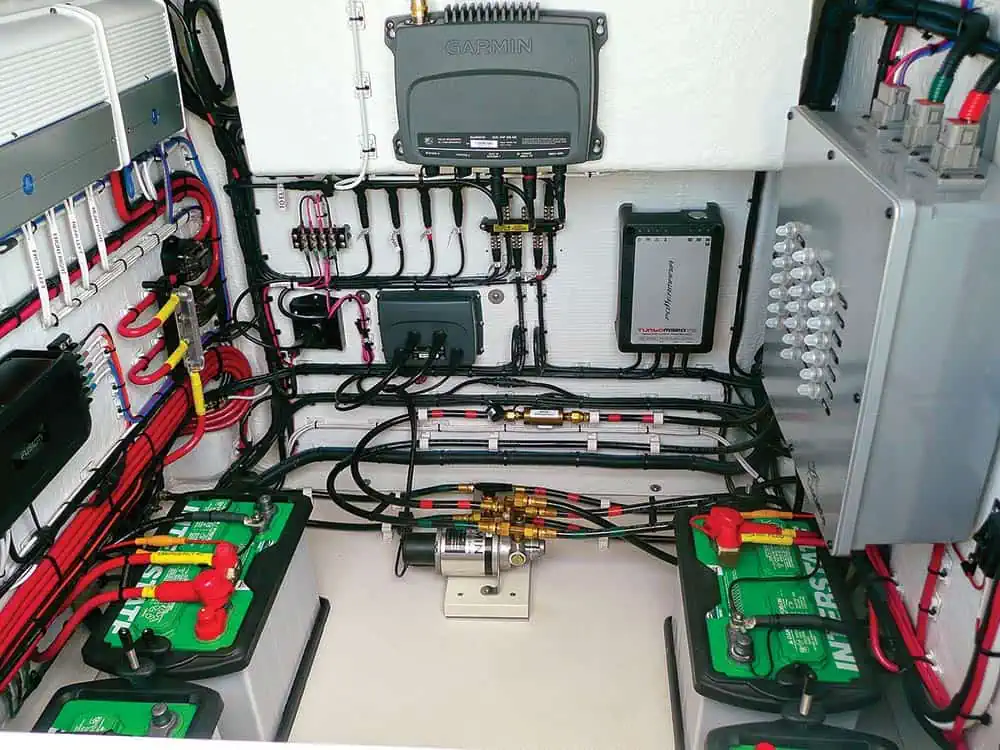A Guide to Choosing Boat Batteries for Marine Applications
As you set sail on the shimmering waters of the Pacific Ocean, you feel the salty breeze on your face and the excitement of adventure in your heart. But as the sun begins to set, the last thing you want is to be stranded in the middle of the ocean with dead batteries. Choosing the right boat batteries in Henderson, NV, is essential for powering your onboard electronics and keeping you safe and connected on the water.
In this guide, you can explore the factors to consider when selecting the right one for your vessel.
Battery Type: Three main types are commonly used in marine applications: absorbed glass mat (AGM), flooded lead-acid, and gel batteries. Each has its own advantages, so it’s essential to understand which type best suits your needs.
Flooded lead-acid batteries are a popular choice among boaters due to their traditional and cost-effective nature. However, they require regular maintenance, including adding water to the cells and ensuring they’re adequately charged.
AGM batteries are a newer technology and offer several advantages over traditional flooded lead-acid ones. They’re more durable, have a longer lifespan, and are virtually maintenance-free. Additionally, they can be mounted in any orientation, making them an excellent option for tight spaces.
Gel batteries are similar to AGM batteries but are filled with a gel electrolyte instead of liquid. They’re more expensive than flooded lead-acid ones but offer a longer lifespan and improved performance in extreme temperatures.
Capacity: Capacity is another essential consideration. It determines how much power they can hold and how long they can run without recharging. It is measured in amp-hours (Ah), and the higher the number, the more power the battery can hold.
To determine your battery’s capacity needs, you’ll need to consider how much power your onboard systems require. You can calculate this by adding up the power consumption of all your electronics, including lights, navigation equipment, and communication devices.
Once you know your power needs, you can determine the minimum capacity required to meet those needs. However, it’s always a good idea to choose one with a higher capacity than you need to ensure you have enough power in emergencies.
Durability: Marine batteries are exposed to harsh conditions, including saltwater, extreme temperatures, and vibrations, making durability crucial. After all, you don’t want them to fail in the middle of the ocean, leaving you stranded.
Before choosing, look for those designed specifically for marine applications. They must have a robust construction to withstand the elements. In addition, they must be sealed to prevent leaks.
Additionally, consider the warranty offered by the manufacturer. An extended warranty indicates a more durable battery and gives you peace of mind knowing you’re covered if something goes wrong.
Other Considerations: There are a few other factors to consider before choosing boat batteries for marine applications. These include:
- Size: The size of your battery should fit the available space on your boat, so measure the area where the battery will be stored before making your purchase.
- Charging: Consider how your batteries will be charged. Will you use a shore power hookup or rely on solar panels or wind turbines?
- Budget: It’s crucial to establish your budget before buying since their cost can vary from a few hundred to several thousand dollars.
Final Thoughts
Choosing the right boat batteries in Henderson, NV, for your boat is critical for ensuring a safe and enjoyable experience on the water. Before buying, consider the type, capacity, durability, and other factors like size, charging, and budget. Proper maintenance and care can help extend their lifespan and ensure they function properly when needed. With the right battery and proper care, you can enjoy a worry-free boating experience and make the most of your time on the water.




